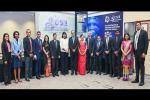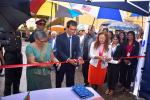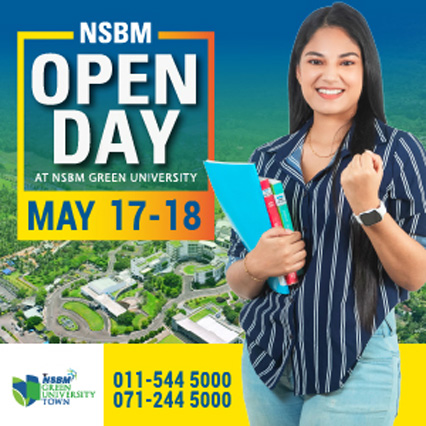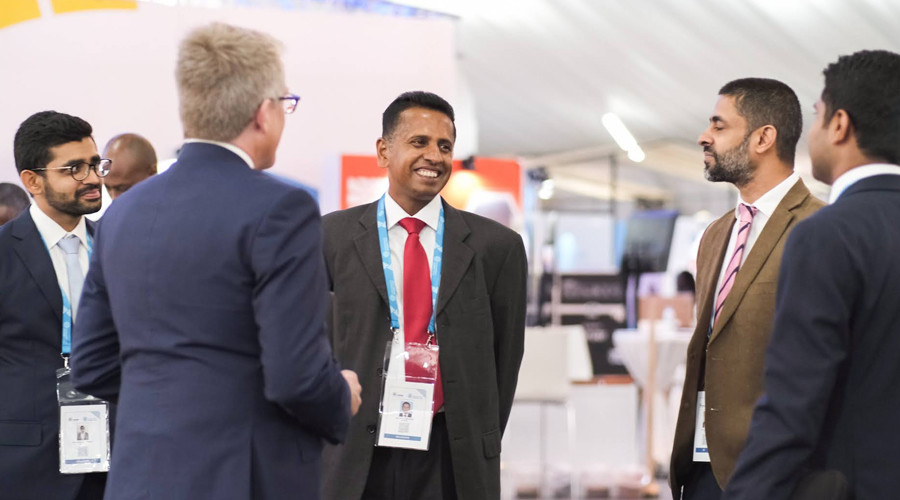The event was a global platform for Sri Lanka’s first service-oriented Special Economic Zone (SEZ) to be showcased in the Business Forum, which was held in Kigali, Rwanda from the 21st to the 23rd of June 2022.
As a strategic partner of the Commonwealth Enterprise and Investment Council (CWEIC), Port City Colombo participated as a proud knowledge partner of the Commonwealth Business Forum, held alongside the Commonwealth Heads of Government Meeting (CHOGM) in Kigali, which was the first and largest, in-person gathering for governments and businesses across the Commonwealth since the COVID-19 pandemic.
CHOGM 2022 attracted over 1,700 delegates from over 90 countries.
Additionally, the Commonwealth has lately, embarked driving forward businesses and cultivating synergies amongst its member nations whilst also expanding upon the member nations of the Commonwealth itself.
The opening comments were given by the Deputy Chairman of the CWEIC, Sir Hugo Swire followed by a key note address by Mr. Thulci Aluwihare, the Deputy Managing Director of CHEC Port City Colombo.
Sir Hugo, in his opening address stated, “It’s a very exciting development, despite the current economic situation prevailing in the country, the Port City SEZ is ring fenced from that.”
The panel also consisted of the Director General of the Colombo Port City Economic Commission who provided insights on the Commission’s role in the project and further also addressed some of the key misconceptions pertaining to the project.
The event was well received by the audience and generated positive feedback on the overall unique features and positioning of the Port City SEZ which will be a game changer in the region.
It was clearly highlighted that the investor confidence was primarily driven by the Port City Economic Commission engaging with global consultants for providing best practices for ease of doing business, banking and ring fencing regulations which will ensure independent functioning of business activities within the zone.
Feedback
During the Business Forum senior management of CPCC and the CPCEC had meaningful one-on-one dialogues with leading institutions and leaders from the business community that cited a Special Economic Zone in Colombo was paramount in attracting Foreign Direct investment.
A common topic discussed with most investors was the current thinking on economically ring fencing the SEZ with robust regulations to ensure impact of current macro-economic shocks of the country is minimized and the risks can be managed suitably within the zone.
As per the Colombo Port City Economic Commission Act, 100% of development capital and doing business capital required to be raised overseas which allows for such supportive ring fencing regulations.
In addition to voicing concerns on the current macro-economic outlook and potential policy reforms as next steps to be engaged as a result of an IMF Program, Investors were keen to obtain clarity on the fiscal and non-fiscal incentives that would be offered for businesses setting up or relocating to Port City Colombo, SEZ.
It was communicated that priority sectors and Businesses of Strategic Importance will be granted a tax holiday of up to 40 years which is to be established through regulations.
A key take away was that it is imperative that an attractive package of fiscal incentives is offered to entice investors with returns that commensurate with country risk.
Some of the other pertinent queries that were posed during the event included:
1. What are the impacts and implications of the current economic headwinds on Port City and specifically, how would one mitigate the currency risk at Port City?
2. Considering the foreign currency crisis currently prevailing in the country, if an investor were to bring foreign currency into Sri Lanka, how safe are said funds and are there any restrictions on permitted transactions and repatriation?
3. What is the availability of skilled human capital?
4. Sri Lanka has always been touted for its strategic location. Besides its natural geographical advantage, how connected is Sri Lanka to global supply chains? Additionally, how many bi-lateral and multi-lateral trade agreements are in place and what are some of the government’s initiatives to promote trade?
Overall, the event allowed CHEC Port City to engage and market the SEZ to a global audience whilst also inundating them on the value proposition at play and indicating why this could be a service-based hub in the South Asian region.
Given the interest we garnered during the event, the next step in realising on the project’s potential is for the regulations to be passed and enacted so that the go-to-market commercialization phase can commence.

























